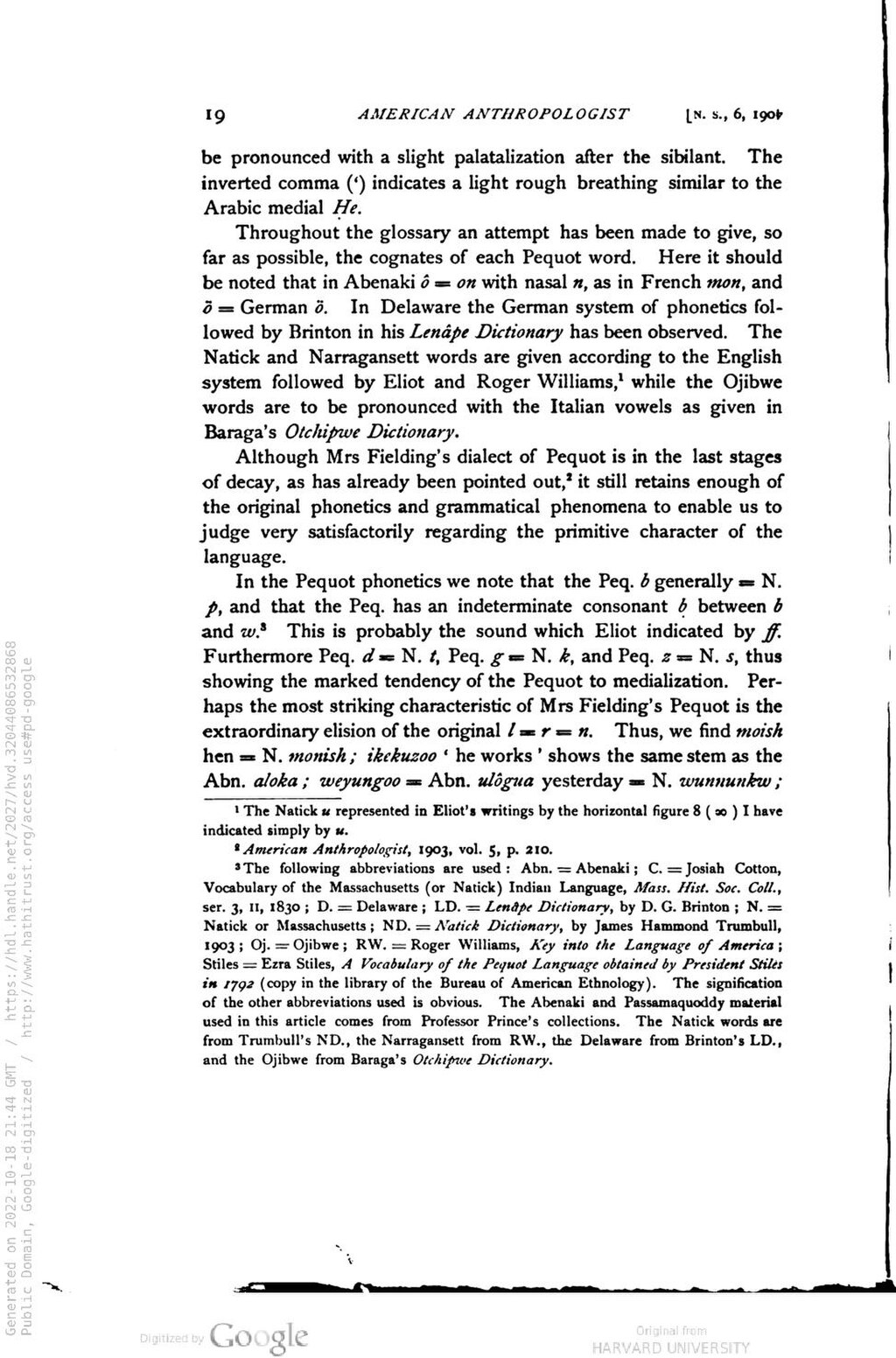be pronounced with a slight palatalization after the sibilant. The inverted comma (‘) indicates a light rough breathing similar to the Arabic medial Ḥe.
Throughout the glossary an attempt has been made to give, so far as possible, the cognates of each Pequot word. Here it should be noted that in Abenaki ô = on with nasal n, as in French mon, and ö = German ö. In Delaware the German system of phonetics followed by Brinton in his Lenâpe Dictionary has been observed. The Natick and Narragansett words are given according to the English system followed by Eliot and Roger Williams,[1] while the Ojibwe words are to be pronounced with the Italian vowels as given in Baraga’s Otchipwe Dictionary.
Although Mrs Fielding’s dialect of Pequot is in the last stages of decay, as has already been pointed out,[2] it still retains enough of the original phonetics and grammatical phenomena to enable us to judge very satisfactorily regarding the primitive character of the language.
In the Pequot phonetics we note that the Peq. b generally = N. p, and that the Peq. has an indeterminate consonant ḅ between b and w.[3] This is probably the sound which Eliot indicated by ff. Furthermore Peq. d = N. t, Peq. g = N. k, and Peq. z = N. s, thus showing the marked tendency of the Pequot to medialization. Perhaps the most striking characteristic of Mrs Fielding’s Pequot is the extraordinary elision of the original l = r = n. Thus, we find moish hen = N. monish; ikekuzoo ‘he works’ shows the same stem as the Abn. aloka; weyungoo = Abn. ulôgua yesterday = N. wunnunkw;
- ↑ The Natick u represented in Eliot’s writings by the horizontal figure 8 (ꝏ) I have indicated simply by u.
- ↑ American Anthropologist, 1903, vol. 5, p. 210
- ↑ The following abbreviations are used: Abn. = Abenaki; C. = Josiah Cotton, Vocabulary of the Massachusetts (or Natick) Indian Language, Mass. Hist. Soc. Coll., ser. 3, II, 1830; D. = Delaware; LD. = Lenâpe Dictionary, by D. G. Brinton; N. = Natick or Massachusetts; ND. = Natick Dictionary, by James Hammond Trumbull, 1903; Oj. = Ojibwe; RW. = Roger Williams, Key into the Language of America; Stiles = Ezra Stiles, A Vocabulary of the Pequot Language obtained by President Stiles in 1792 (copy in the library of the Bureau of American Ethnology). The signification of the other abbreviations used is obvious. The Abenaki and Passamaquoddy material used in this article comes from Professor Prince’s collections. The Natick words are from Trumbull’s ND., the Narragansett from RW., the Delaware from Brinton’s LD., and the Ojibwe from Baraga’s Otchipwe Dictionary.
